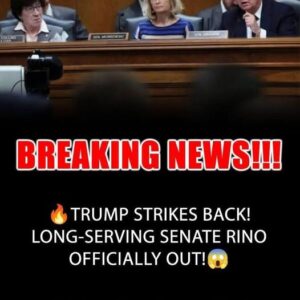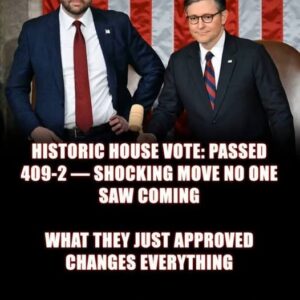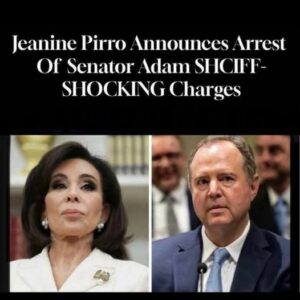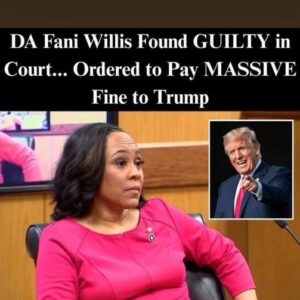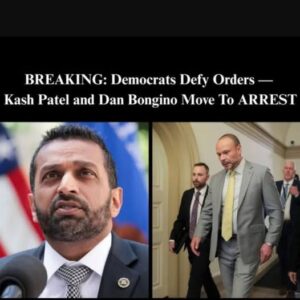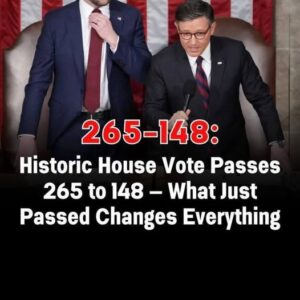Los Angeles has long been a flashpoint in America’s debate over immigration, but the events of the past week have propelled the city into the national spotlight once again. Following a high-profile immigration enforcement operation by U.S. Immigration and Customs Enforcement (ICE), thousands of protesters have filled the streets, clashing with law enforcement in what some are calling the most organized demonstrations the city has seen in years.
At the heart of the controversy is a new question that has spread from social media into the halls of Congress: Who is funding these protests?
Senator Josh Hawley (R-MO), chair of the Senate Judiciary Subcommittee on Crime and Terrorism, announced this week that he is formally seeking answers. Hawley’s move makes him the first Republican lawmaker to openly call for a federal investigation into the financial and logistical networks behind the unrest. His announcement has set off a wave of reactions across the political spectrum, with supporters hailing the inquiry as necessary for transparency and critics warning it could chill lawful dissent.
A City on Edge
The latest demonstrations began after ICE agents carried out a large-scale operation targeting undocumented immigrants with prior deportation orders. The raids, spread across several neighborhoods, quickly drew the attention of immigrant rights groups, community organizers, and activists.
Within hours, rallies formed outside federal detention centers and along major streets. By nightfall, pockets of confrontation between protesters and police had escalated into tense standoffs. Video clips shared online showed groups of protesters equipped with heavy-duty face shields, padded body armor, and tactical-style communication gear — equipment not typically associated with spontaneous street gatherings.
For many Angelenos, these images raised immediate questions. Where did the gear come from? Who provided it? And how could protesters mobilize with such speed and coordination?
Hawley’s Call for Transparency
Senator Hawley seized on these questions during a press conference on Wednesday.
“Peaceful protest is a cornerstone of our democracy,” Hawley said. “But when protests escalate into violence, when they disrupt federal operations and put civilians at risk, we need to know if someone is orchestrating it behind the scenes.”
Hawley’s subcommittee has broad subpoena authority, allowing it to demand documents from individuals and organizations. In his first move, he issued a letter to Angelica Salas, executive director of the Coalition for Humane Immigrant Rights (CHIRLA), one of the most prominent immigrant advocacy groups in Los Angeles.
The letter requested an array of documents, including financial records, communications related to protest logistics, equipment purchase receipts, and donor disclosures. Hawley also asked for any records concerning travel and lodging for demonstrators, suggesting that out-of-town participants may have been supported by organized funding.
Failure to provide the requested materials, Hawley warned, could lead to legal consequences, including a potential criminal referral.
Spotlight on CHIRLA
Founded in 1986, CHIRLA has played a central role in advocating for immigrant communities in Southern California. The nonprofit provides legal aid, runs community education programs, and lobbies for immigration reform at the state and federal levels.
CHIRLA has also been a driving force behind mass mobilizations. In 2018, it helped organize rallies demanding the abolition of ICE. More recently, it coordinated the Los Angeles Rapid Response Network, which alerts community members when immigration enforcement actions occur.
Supporters argue that CHIRLA’s mission is lawful and rooted in civil rights advocacy. But critics contend that its involvement in protests that occasionally turn confrontational deserves scrutiny.
So far, CHIRLA has not issued a detailed public response to Hawley’s letter. A spokesperson for the group said only that the organization “remains committed to defending immigrant rights through peaceful means.”
The Gear Question
Beyond financial records, much of the speculation has focused on the equipment used by protesters.
Local news outlets have highlighted footage of demonstrators carrying reinforced shields, padded protective gear, and tactical-style earphones that allow for rapid communication in noisy environments. Police officers who responded to the protests said they were surprised by the level of preparation.
“Most protests we deal with involve handmade signs, maybe masks, sometimes makeshift protective gear,” said one LAPD officer, speaking on condition of anonymity. “This time, we were facing groups that looked like they were outfitted for urban combat.”
While such equipment can be legally purchased online, the scale and uniformity observed suggest that it may not have been individually acquired. Analysts say that if a nonprofit or outside funder provided such gear, it could represent a violation of state or federal law depending on how the funds were used.
A Divided Public
The controversy has sharply divided opinion in Los Angeles and beyond.
For supporters of the protests, Hawley’s inquiry is seen as a political maneuver aimed at discrediting immigrant-rights activism. Civil liberties groups have warned that demanding donor lists and internal communications could amount to intimidation.
“Targeting advocacy organizations undermines the First Amendment,” said Maria Delgado, a constitutional lawyer based in Los Angeles. “The government cannot use investigatory powers to chill free expression or to discourage people from supporting causes they believe in.”
Conservatives, however, argue that transparency is vital. They point to the violence that erupted during some of the demonstrations — including reports of vandalism, blocked traffic, and minor injuries to police officers — as evidence that the public deserves to know if outside forces are fueling the unrest.
“This is about accountability,” said Laura Powell, a conservative attorney whose social media posts questioning the protests have gone viral. “If taxpayer-funded organizations are supporting riots, the public has a right to know.”
Historical Context
This is not the first time questions about protest funding have surfaced in the United States.
During the 2020 nationwide protests over police brutality, rumors circulated that activists were being paid or supplied by wealthy donors and political organizations. Although some investigations found limited evidence of coordinated funding for protest logistics, no large-scale conspiracies were substantiated.
Similarly, in the wake of the January 6, 2021 Capitol riot, federal investigators scrutinized the financial backers of the groups involved, examining whether travel, lodging, or equipment had been supported by third parties.
The Los Angeles inquiry now joins this history, reflecting the ongoing tension between the right to protest and the responsibility to maintain public safety.
What Comes Next
Hawley’s subcommittee has not yet announced whether subpoenas will be issued, but staff members have suggested that hearings could be scheduled in the coming weeks. If subpoenas are served, CHIRLA and other groups could be compelled to turn over thousands of pages of documents.
Legal analysts expect any such demand to spark court challenges, with advocacy groups likely to argue that the requests infringe on their constitutional rights. The outcome could set a precedent for how far Congress can go in investigating nonprofit activism.
Meanwhile, protests in Los Angeles show no sign of abating. Community leaders say more rallies are planned, with or without outside support. City officials remain on alert, balancing the protection of free speech with the need to keep public spaces safe.
For now, the questions remain unresolved: Are the protests a genuine grassroots response to immigration enforcement, or the product of deeper organizational planning and outside funding?
As Hawley’s inquiry unfolds, Los Angeles once again finds itself at the center of America’s fiercest political battles — a city where the streets themselves tell the story of a nation struggling over identity, law, and democracy.
